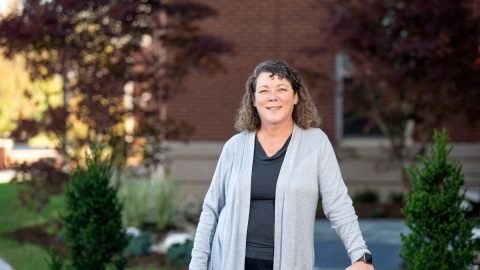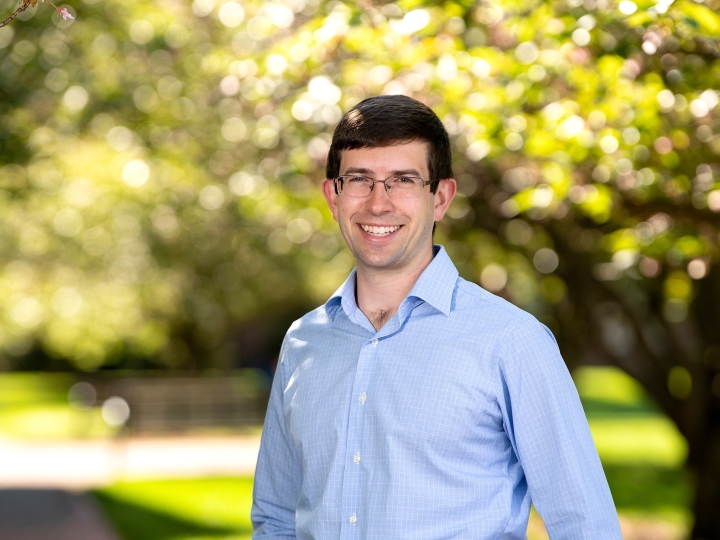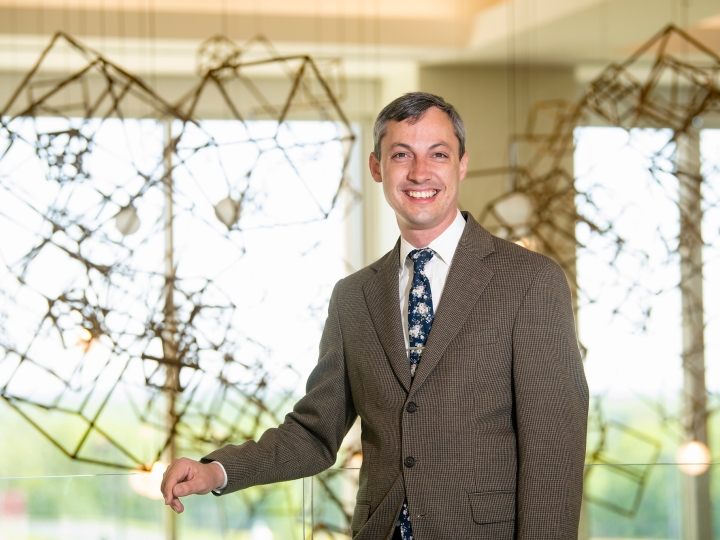
Stacy Mastrolia, Accounting
March 16, 2021
"Accountants provide analysis that decision-makers use to negotiate contracts and structure deals, and to decide which products to promote, when and how to expand the business, and even how to redesign products. And people think we just do math!"
Professor Stacy Mastrolia, accounting, was the controller for an international manufacturing company when she decided to get her MBA. "In my classes, I watched professors tailor information uniquely for individual students, and I was hooked," she says. "I knew I wanted to teach." After completing her MBA, Mastrolia made a major career change, leaving behind 15 years in the corporate world and returning to school to earn her doctorate.
"I've never been happier," she says. "I love my students' energy and enthusiasm. And since accounting only has about 30 to 40 majors in each class year, I get to work closely with each of them."
Mastrolia says her experience in the business world helps her prepare her students for the future. Her classes not only teach the numerical know-how and analytical mindset an accountant needs, but also the important role those skills and the profession plays in society. Her Accounting Seminar investigates real financial reporting frauds that drew headlines throughout history and examines how accountants and fraud are depicted in the media, including film. Her Personal Finance course, open to students of all majors, covers the basics graduates need to save and thrive after college.
She even brings her own creative work into the classroom. Mastrolia co-authored a pedagogical novel, Accosting the Golden Spire, with three other accounting professors, and uses it in the introductory accounting course. "It's a story about a jewel theft, an embezzlement and the forensic accounting profession," she explains. "It exposes the many gray areas of business, brings up questions of ethics and sparks a lot of class discussion. It also introduces students to professions in accounting and finance they may never have considered — or even heard of."
Mastrolia advises her students to be open to the many career options the field offers and envision where they want to be in 10 or 20 years. "Accounting is a great field," she says. "We can work anywhere in the world, and we have great flexibility. Accountants are needed in both large cities and small towns, in large organizations and small organizations, for-profit companies and not-for-profit organizations. If you love the arts or sports? They need accountants, too."
Accountants aren't bookkeepers, Mastrolia stresses. "They provide analysis that decision-makers use to negotiate contracts and structure deals, and to decide which products to promote, when and how to expand the business, and even how to redesign products. And people think we just do math!"

